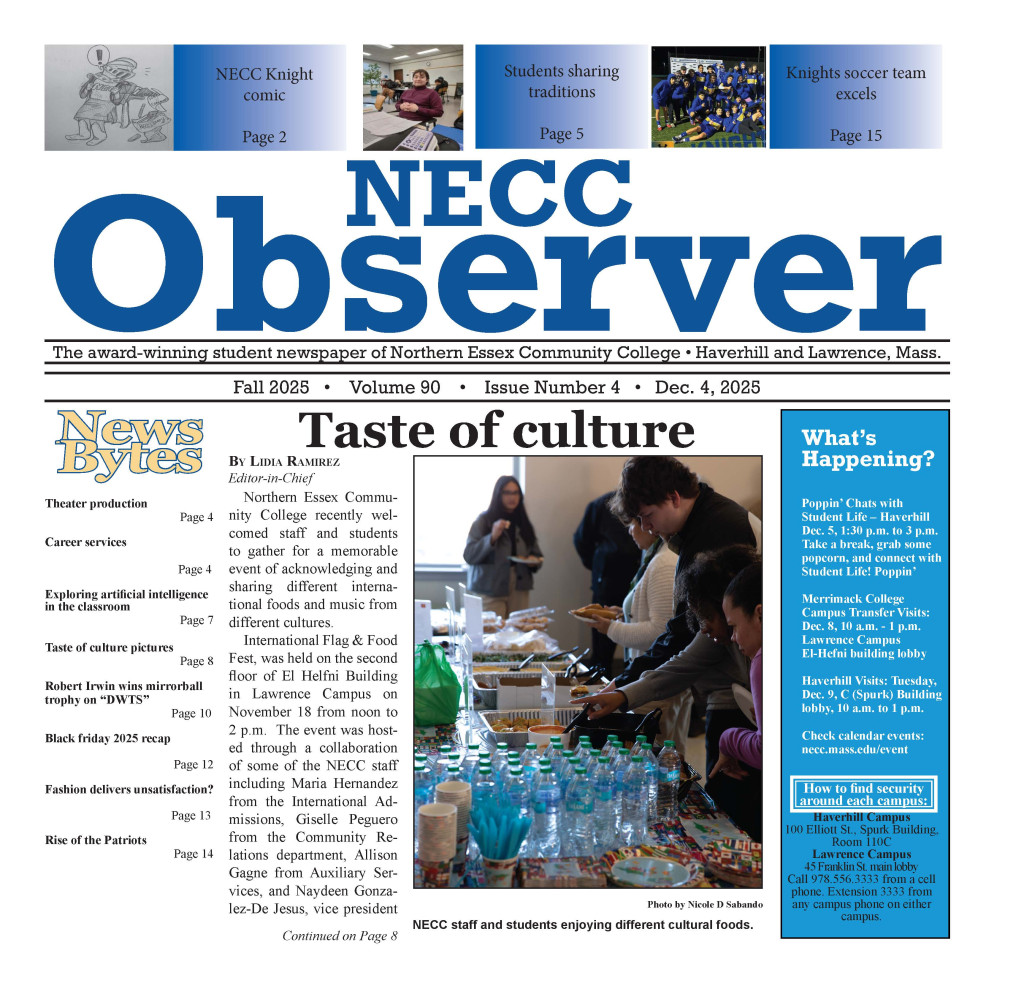Many make New Year’s resolutions but are unable to keep them.
Working out, eating healthier, reading more. But how are some able to complete their resolutions and even make them into a habit?
I asked two current and one former NECC student about this to try to examine what factors made their resolutions stick.
Former student Karen Smith made a resolution in 2020, to eat healthier; two years later she has kept that resolution and has lost almost 40 pounds!
I sat down with her to ask what steps she took to be successful.
She told me, “Honestly, what made it the easiest for me to keep up with it was meal prepping. With my meals already made, I was less tempted to eat something else because I had something already prepared and did not want it to go bad!”
For Smith, her kids were also a spark of inspiration to keep her going. “I wanted to be healthier for my kids so I can live longer and overall just feel better about myself.”
Olivia Hansen’s goal was to read more books.
On average in 2020 she read about 12 books. Now in 2022 she is reading almost 50 books a year.
“Really, what it did for me was making the time to go and read. When I found myself on my phone for a little too long, I would instead go and pick up a book. The more and more I did that it became easier for me to choose my book instead of my phone. Then it became a game to see how many books I could read.”
Hansen’s tip for those trying to read more: pick an interesting and fast paced book, if you keep reading engaging books you’ll find yourself always wanting to read more.
For Avery Hochheiser, her goal was to work out more.
She told me it was hard at first but once it became routine, she found herself enjoying when it was time to go workout. “Kickboxing is what made it fun for me. I don’t think if I did any other type of exercise I would have been able to keep at it.”
Finding what was enjoyable was key for Hochheiser keeping her resolution.

